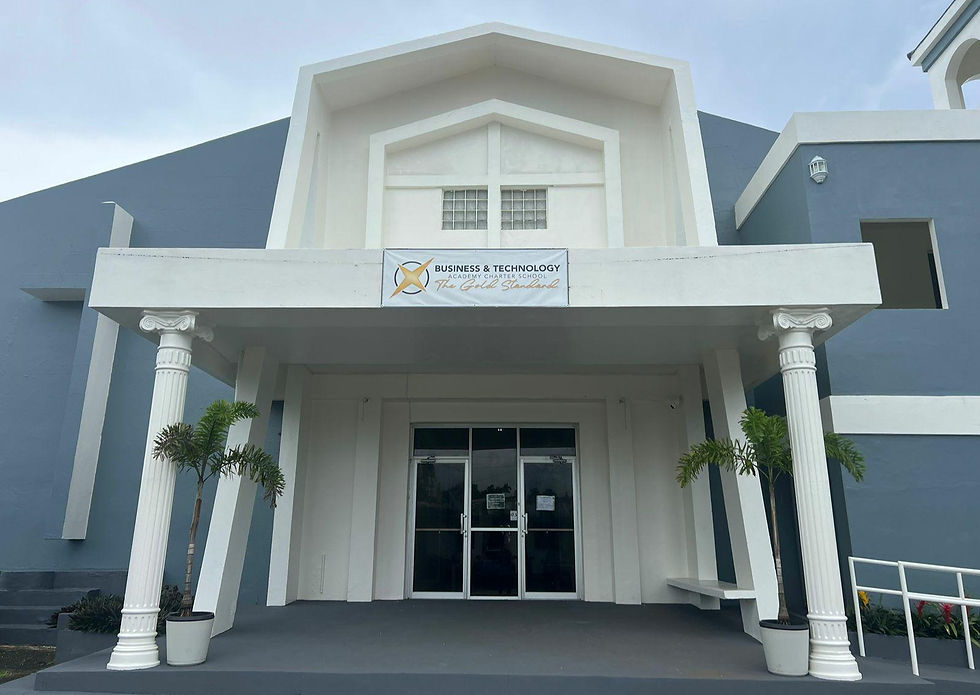US Virgin Islands representative protests exclusion of territorial delegates from House speaker vote
- Admin

- Jan 4
- 3 min read
Updated: Jan 5

By Jayvee Vallejera
Republican Mike Johnson narrowly won reelection Friday as House speaker, but not before U.S. Virgin Islands Del. Stacey E. Plaskett was able to demand to be able to vote in the election before her microphone was cut off.
In one of the more dramatic twists to what was supposed to be the ceremonial election of a speaker, Plaskett, a Democrat, pointed out that delegates representing U.S. territories were never called to cast their votes for the speakership, which she said ignored the voice of 4 million Americans living in the territories.
“I note that the names of the representatives from American Samoa, Guam, Northern Marianas, Puerto Rico, the [U.S.] Virgin Islands and the District of Colombia were not called, representing collectively the largest per capita of veterans in this country. I ask why they were not called.”
Her comments drew applause from the House Democrats, who gave her a standing ovation.
Some on the other side of the aisle heckled her. She responded by admonishing the hecklers: “Have some respect,” she said, reiterating her question why the delegates were not called.
Plaskett was told that delegates and the Puerto Rico resident commissioner were not qualified to vote and that House representatives were the only individuals qualified to vote in the election of a speaker, as provided in Section 36 of the House Rules and Manual. That section says the speaker is elected by a majority of the members-elect voting by surname.
Territorial delegates can introduce legislation and may vote on the committee level but do not have a right to vote on legislation in the full House.
Americans living in U.S. territories are also not allowed to vote for president.
Plaskett argued that Congress and the United States have “a territories and colonies problem” that must be resolved so that the 4 million Americans living in these territories will have a voice in Congress.
“What [was] supposed to be temporary has now effectively become permanent. We must do something about this problem,” she said, raising her right arm to press her argument.
At that point, her microphone was cut off.
The incident was another twist to a speakership election that saw Johnson being elected to the leadership post by the slimmest of margins, 218-215, and only after managing to convince two Republican holdouts to switch their votes and after securing a vote of confidence from President-elect Donald Trump, who reportedly called the dissenting Republican lawmakers from the golf course.
Three hardline Republicans initially did not support Johnson’s reelection—Reps. Ralph Norman of South Carolina, Keith Self of Texas and Thomas Massie of Kentucky After a brief meeting outside the House chamber, Norman and Self changed their votes, giving Johnson the votes needed to secure the speakership.

CNMI Del. Kimberlyn King-Hinds, a Republican, later described the scene as a “minor hiccup,” soon after being interviewed by Marianas Press.
In contrast, the scene at the U.S. Senate reportedly kept to traditional lines, having already elected party leaders even before officially convening. Sen. John Thune is the Republican majority leader and Sen. Chuck Schumer is the Democratic minority leader.
As was largely expected after last November’s election, Republicans now control the House and Senate, and Trump’s ascension to the White House on Jan. 30 will also mean a Republican sitting at the White House. Trump first served as U.S. president from 2017 to 2021.
The election of the House speaker has a more outsize impact because the U.S. Constitution places the position second in the line of succession to the president.
Subscribe to
our digital
monthly edition









Comments